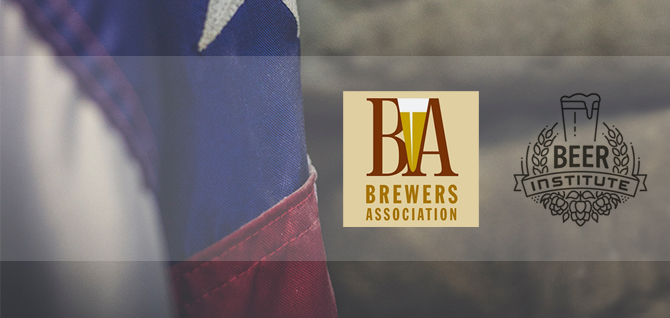
Maryland Alcohol Law Reform Legislation Introduced
Maryland Comptroller Peter Franchot has introduced the “Reform on Tap Act of 2018,” which he says will create a friendlier business climate for the state’s craft breweries.
The proposed legislation would drastically alter Maryland’s alcoholic beverage laws by removing all limits on beer production as well as restrictions on taproom and take-home sales. The act would also repeal a controversial “buy-back” provision included in House Bill 1283 — which was passed into law earlier this year — requiring breweries that sell more than 2,000 barrels of beer directly to consumers to purchase another 1,000 barrels from a wholesaler at a “marked-up cost.”
Additionally, the legislation would eliminate the state’s franchise laws, which lock breweries into nearly unbreakable lifetime contracts with wholesalers; allow local jurisdictions to set taproom hours; and allow brewers producing less than 300,000 barrels of beer to self-distribute, among other changes.
“We simply cannot ignore the fact that our laws and regulatory framework have stood in the way of the limitless potential of Maryland’s craft beer industry,” Franchot, the state’s chief alcohol regulator, said in a press release. “This is going to take us from last in the region, to the first in the nation.”
Franchot’s office has asked the governor to submit the legislation as a departmental bill, which often receives a hearing before the Legislature, although that is not guaranteed, the Baltimore Sun reported.
Read more about Franchot’s 12-point plan here.

Senate Tax Bill Gains Steam as Alcohol Industry Watchdogs Cry Foul
Although hurdles still exist, the Senate’s tax reform proposal gained momentum today as Alaska Sen. Lisa Murkowski reiterated her opposition to the Affordable Care Act’s individual tax mandate, writing in an op-ed that she supports the repeal of that tax, according to Bloomberg.
That’s important to brewers because, as Brewbound reported last week, the Senate’s version of tax reform includes excise tax relief that would benefit brewers via the Craft Beverage Modernization and Tax Reform Act (CBMTRA).
CBMTRA would cut the federal excise tax to $3.50 per barrel (currently $7) on the first 60,000 barrels for domestic brewers producing fewer than 2 million barrels annually. Additionally, the legislation would reduce the federal excise tax to $16 per barrel on the first 6 million barrels for all other brewers and beer importers while maintaining the $18 per barrel excise tax for brewers producing more than 6 million barrels.
However, the modernization bill’s inclusion in the Senate’s version of tax reform has drawn opposition from nonprofit advocacy group Alcohol Justice, which said the tax breaks would cost the U.S. $642 million over two years.
“Of the projected $126 million annual giveaway to beer manufacturers, $50 million will be claimed by just seven ‘mega-craft’ brewers,” the organization said in a press release.

NBWA Beer Purchasers’ Index Expands; BI’s October Domestic Tax Paid Estimates Up
The National Beer Wholesalers Index — which gauges U.S. beer distributors’ monthly purchasing activity — saw a reading of 50.5 in October, which is up significantly over September’s 41.3 reading. For all of 2017, the craft and imports segments have tracked above a 50 reading.
“These two high end segments are now tracking each other much closer over the past few months,” NBWA chief economist Lester Jones said in a press release. “Premium Lights, Regular Premium and Below Premiums all posted slightly higher readings compared to the past three months, however their index readings are still below the 50 mark.”
The NBWA also found the FMBs registered below 50 for the second month while cider posted its highest reading of the year, although the NBWA said that segment is still contracting.
According to the NBWA, “a reading greater than 50 indicates the segment is expanding,” while “a reading below 50 indicates the segment is contracting.”
Meanwhile, the Beer Institute (BI), citing Alcohol and Tobacco Tax and Trade Bureau (TTB) figures, released unofficial estimates of domestic tax paid shipments for U.S. beer producers through October. After three consecutive months of declines, October shipments increased by 5.6 percent over the same period last year.
U.S. brewers shipped a total of 13,726,000 barrels in October, according to the BI. However, total shipments for the year — 144,980,000 barrels — are down 1.9 percent (2,837,484) compared to 2016.

Massachusetts Brewers Guild Offers Discounted Lyft Rides
The Massachusetts Brewers Guild is partnering with Lyft to offer more than 2,000 discounted rides to and from its member breweries tonight (November 22). Lyft is offering $10 off rides from 8 p.m. Wednesday, November 22, until 3 a.m. November 23, with the code MBGTHANKFUL.
Massachusetts Brewers Guild executive director Katie Stinchon told Brewbound that the promotion covers rides to and from all 89 member breweries in the state.
“We asked our breweries when is the most popular evening in your taproom during the holiday season, and they all resoundingly said Thanksgiving eve,” Stinchon said.
In October, the Massachusetts Brewers Guild announced an exclusive ride-sharing partnership with Lyft. Stinchon said additional offers are forthcoming.
Earlier this year, Anheuser-Busch InBev announced a partnership with Lyft to offer up to 150,000 rides through the end of the year.
